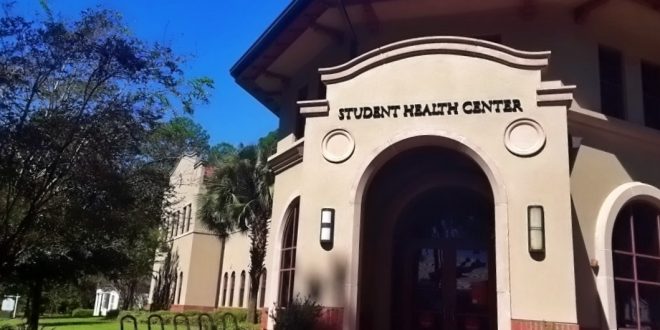The mental health of college students has been considered an epidemic by the American College Health Association since the early 2000s. Recent studies have found that COVID-19 has had a serious effect on the overall mental health of University students.
The Census Bureau holds a yearly Household Pulse Survey where questions about mental health are used to identify what percentage of people have symptoms of anxiety or depression each week. This year, the National Center for Health Statistics partnered with the bureau to find how COVID-19 has changed the calculations since 2019.
Between May 14 and May 19 last year, the survey found that 33.9% of 18 to 29-year-olds showed symptoms of depression or anxiety. That same week in 2020 found that the percentage raised to 38.6% because of COVID-19.
The highest spike in the current survey was the week of July 9 through July 14. During this week, 55% of the same age group showed symptoms of depression or anxiety.
The most recent percentage from Sept. 2 through Sept. 14 came in at 47.3%.
This trend in decreasing mental health has also been an issue for students at VSU.
“My mental health before COVID was not the best, but it was definitely better,” Zach Collis, a freshman, said. “I’ve had to isolate myself more and had to completely change my routine in some aspects, which made my stress and anxiety increase.”
Zach said he has been trying to stay productive with classes and campus involvement, including joining the Spanish club and attending different events to improve his mental health.
“I have improved a lot since being on campus, and I am hoping to improve more,” he said.
“Before COVID, I would say my mental health was pretty average,” Troy Weston, a senior psychology major, said. “However, when it began, the isolation really affected me. I was often depressed.”
Weston believes being close to people again has had a positive impact on his mental health since returning to campus. While his classroom performance has been good, he often feels unmotivated to work.
VSU’s Counseling Center has continued to provide one-on-one student counseling over the phone and through virtual meetings according to valdosta.edu/counseling. They also hold Quarantine Conversations every Thursday at 2:30 p.m. via Collaborate Ultra in which quarantined and non-quarantined students can meet and talk in a virtual setting.
Some resources around Valdosta include the Christian Counseling Services of South Georgia, the Emotional Wellness Center of Valdosta and the Better Mood Clinic of South Georgia.
On Bettermoodclinic.com, BMC has documents on their website that provide people with information on how to keep a stable well-being during COVID-19, as well as how to manage the psychological effects of the pandemic.
According to ewcvaldosta.com, the EWC of Valdosta has counseling and treatment plans for multiple mental health issues, including depression, anxiety, PTSD and trauma. They hold individual, family and relationship sessions and are currently accepting new clients.
CCS of South GA are a Christian, faith-based counseling center that also provides counseling to individuals, families and couples according to ccssga.com. They provide mental health counseling, spiritual counseling, abuse counseling and many others. A full list of their services and counseling topics can be found on their website.
There is also a large amount of literature that discusses mental health, addiction and the affects they have, including “Gray” by Pete Wentz, “Wishful Drinking” by Carrie Fisher and “Note to Self” by Connor Franta. Self-help books are also good sources for information on mental health, including many of the “Chicken Soup for the Soul” works.
Hours for VSU Counseling, BMC and EWC vary depending on day. Exact hours and appointment information can be found on all their respective websites.
Written by Bailey Storey, Staff Writer. Photo courtesy of Bailey Storey.
 The Spectator The independent student newspaper of Valdosta State University
The Spectator The independent student newspaper of Valdosta State University






